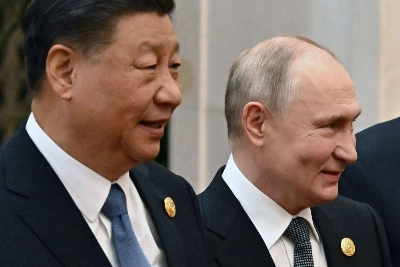China’s top diplomat will make a rare visit to Washington this week, the U.S. State Department has announced, in a move widely expected to lay the groundwork for a visit to the United States by Chinese leader Xi Jinping next month for talks with President Joe Biden.
Foreign Minister Wang Yi will be the highest-ranking Chinese official to travel to Washington in about five years when he visits the U.S. capital for three days from Thursday.
Wang, who also serves in a higher-ranking position as director of the Chinese Communist Party’s foreign affairs commission, will meet with U.S. Secretary of State Antony Blinken “to discuss a range of bilateral, regional, and global issues as part of ongoing efforts to responsibly manage the U.S.-China relationship and to maintain open channels of communication,” the State Department said.






















With your current subscription plan you can comment on stories. However, before writing your first comment, please create a display name in the Profile section of your subscriber account page.